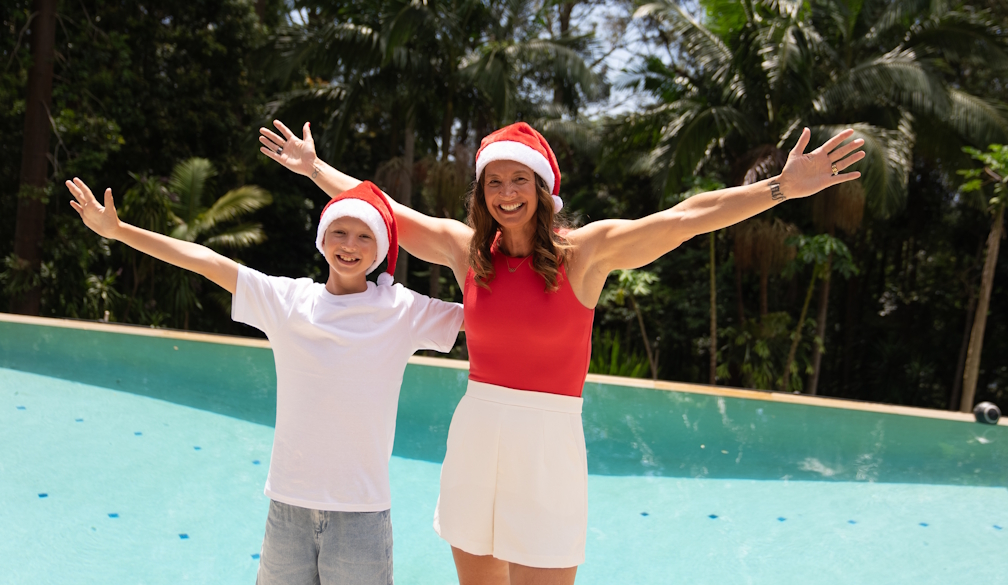Olympic swimmer Brooke Hanson drives campaign to find a cure for coeliac disease
4 December 2024: In her role as an ambassador for Coeliac Australia, former Australian Olympic swimmer Brooke Hanson is supporting the organisation’s first ever Christmas holiday campaign to raise funds to find a cure for coeliac disease – a condition which affects over 400,000 Australians.
Hanson, who was diagnosed with coeliac earlier this year, is taking up the cause to help drive increased awareness of the disease and place a renewed focus on the significant need for funding to support treatment of the condition and ongoing efforts to find a cure.
“With your help this Christmas we can pave the way for a future where one day we have the cure which allows people with coeliac disease to eat what they want without the risk of inflammation or hospitalisation,” she said.
The campaign sees Hanson joined by her 11-year-old son Billy - also a coeliac sufferer - in a national fundraising push over the Christmas holiday period featuring media relations, a direct mail campaign, social media outreach and related activities.
Hanson, who won gold and silver medals for Australia at the 2004 Olympics in Athens, said she was only diagnosed with coeliac earlier this year after having suffered symptoms for many years.
“I always thought I had issues – even early on in my childhood when I had stomach pains and constipation,” she said. “I just kept telling my doctor, there must be something wrong, please do some more tests. I never gave up and eventually received the diagnosis that changed my life.”
Hanson said many people simply weren’t aware they suffered from the condition and ended up eating the wrong foods as a result, causing significant impacts on their daily health and wellbeing.
“My son Billy spent the first 10 years of his life in and out of hospital,” she commented. “But since he was diagnosed and changed his diet, Billy has transformed his life simply by removing gluten from his diet.”
Coeliac disease is an autoimmune disease triggered by gluten. Some of the common symptoms include, fatigue, iron deficiency, mouth ulcers, childhood development issues and varying degrees of digestive and gastrointestinal problems.
Hanson said she was determined to use her voice to help change the situation for all Australians. “Not enough people know about the disease, not enough doctors are looking for it and not enough people are being tested for it,” she observed.
“Indeed, figures suggest up to 80% of people suffering coeliac disease don’t even know they have it. That’s thousands of people across the country struggling through their day with fatigue, iron deficiency and irritable bowel symptoms. Even more scary are those who experience limited symptoms but remain at risk of life-altering complications like osteoporosis and liver disease.”
Hanson is calling on Australians to dig deep and give generously to Coeliac Australia’s Christmas holiday appeal. She said a donation of $50 can help increase awareness and access information about safe gluten-free products and locations, a $125 donation can help develop better screening and detection tests and a $250 donation can help support wider efforts to find a cure.
“I look forward to the day we find a cure so that we can all sit at a Christmas lunch together and say, ‘maybe we can have that gluten today’, because at the moment that is not the case and all coeliac sufferers have to remain vigilant about what they eat each and every day,” she said.
“I encourage people to support Coeliac Australia’s appeal to raise awareness, fund ongoing research for a cure and promote advocacy to help people make informed decisions about eating to live their best life.”
Coeliac Australia is the peak national body representing the needs of those suffering coeliac disease.
















